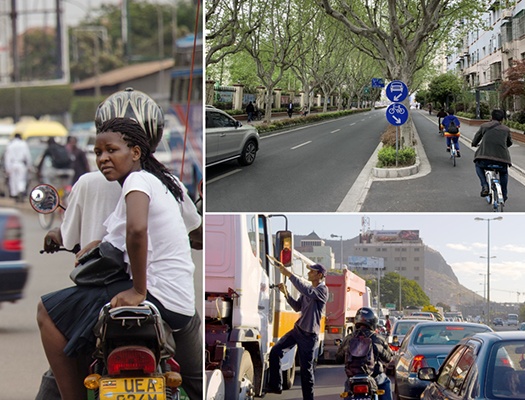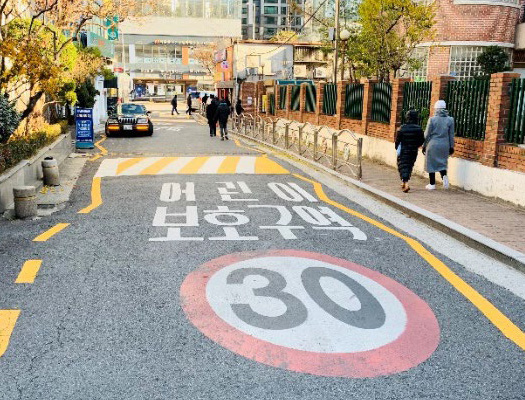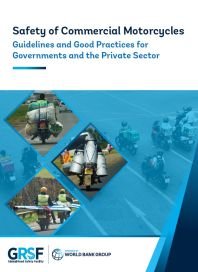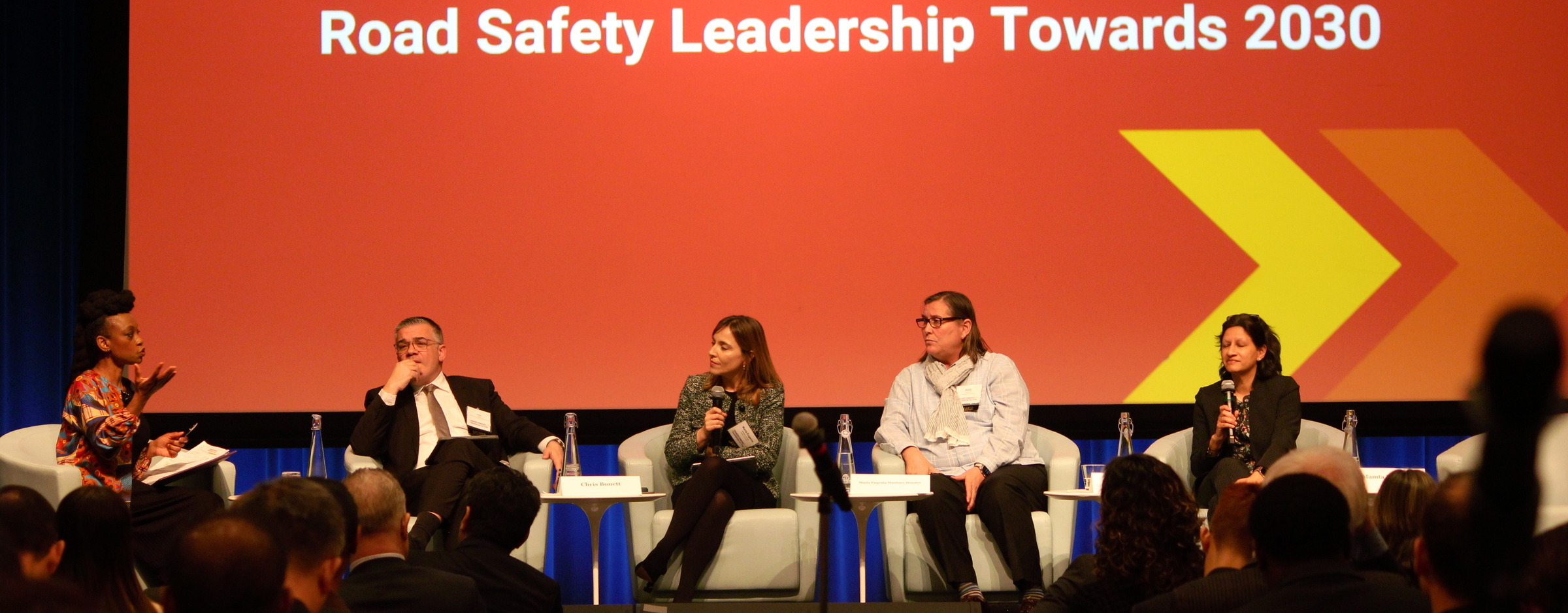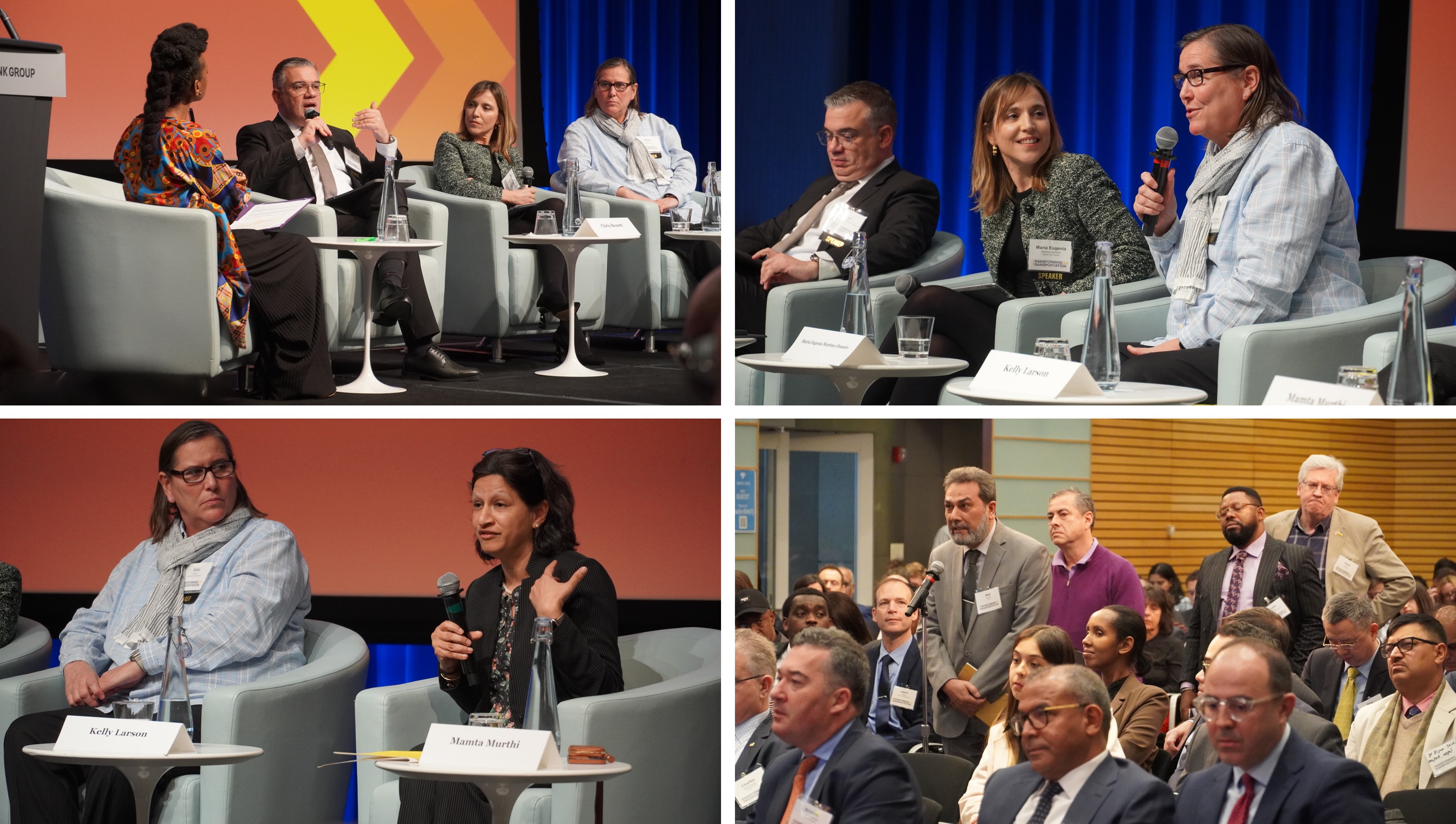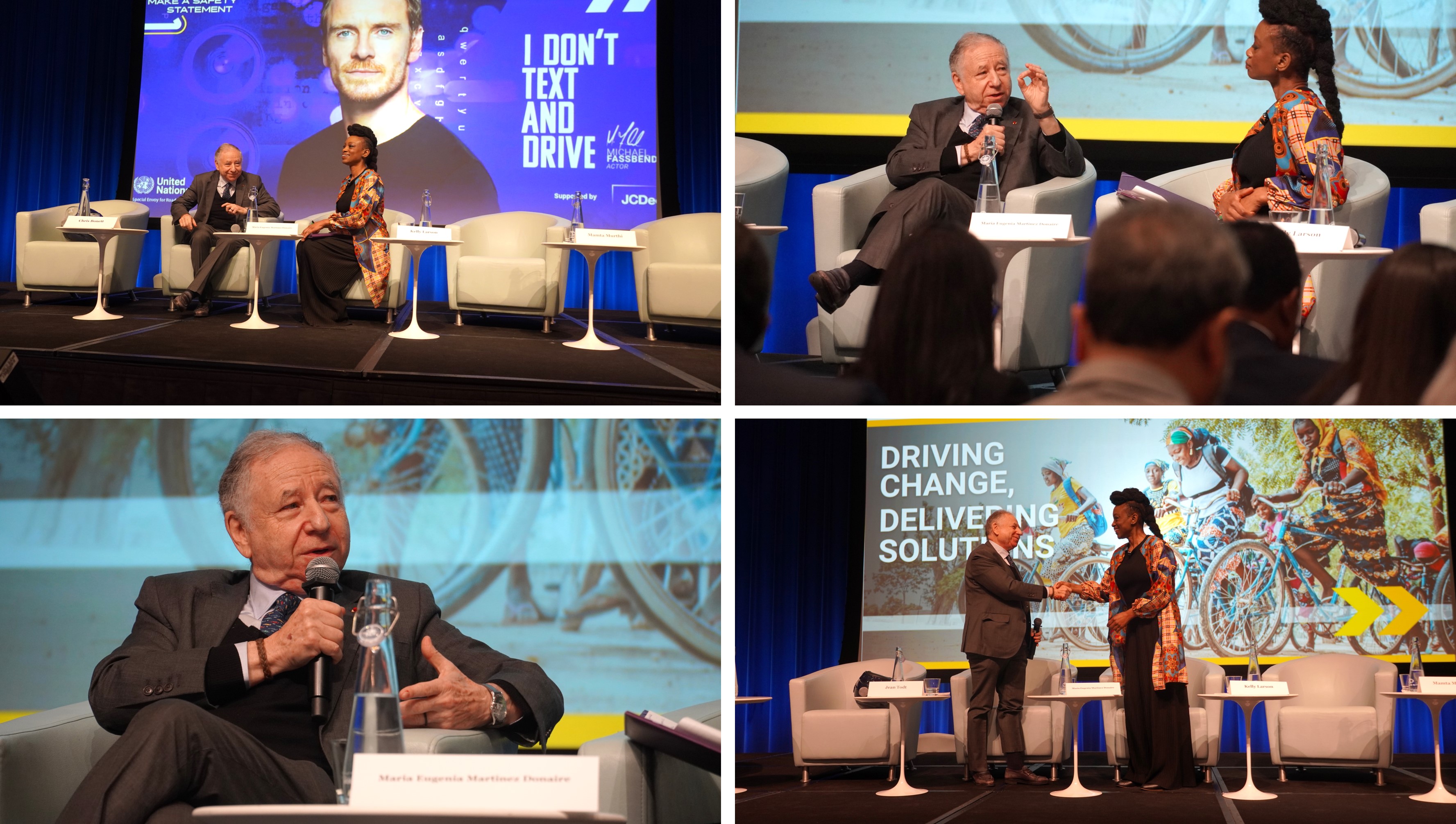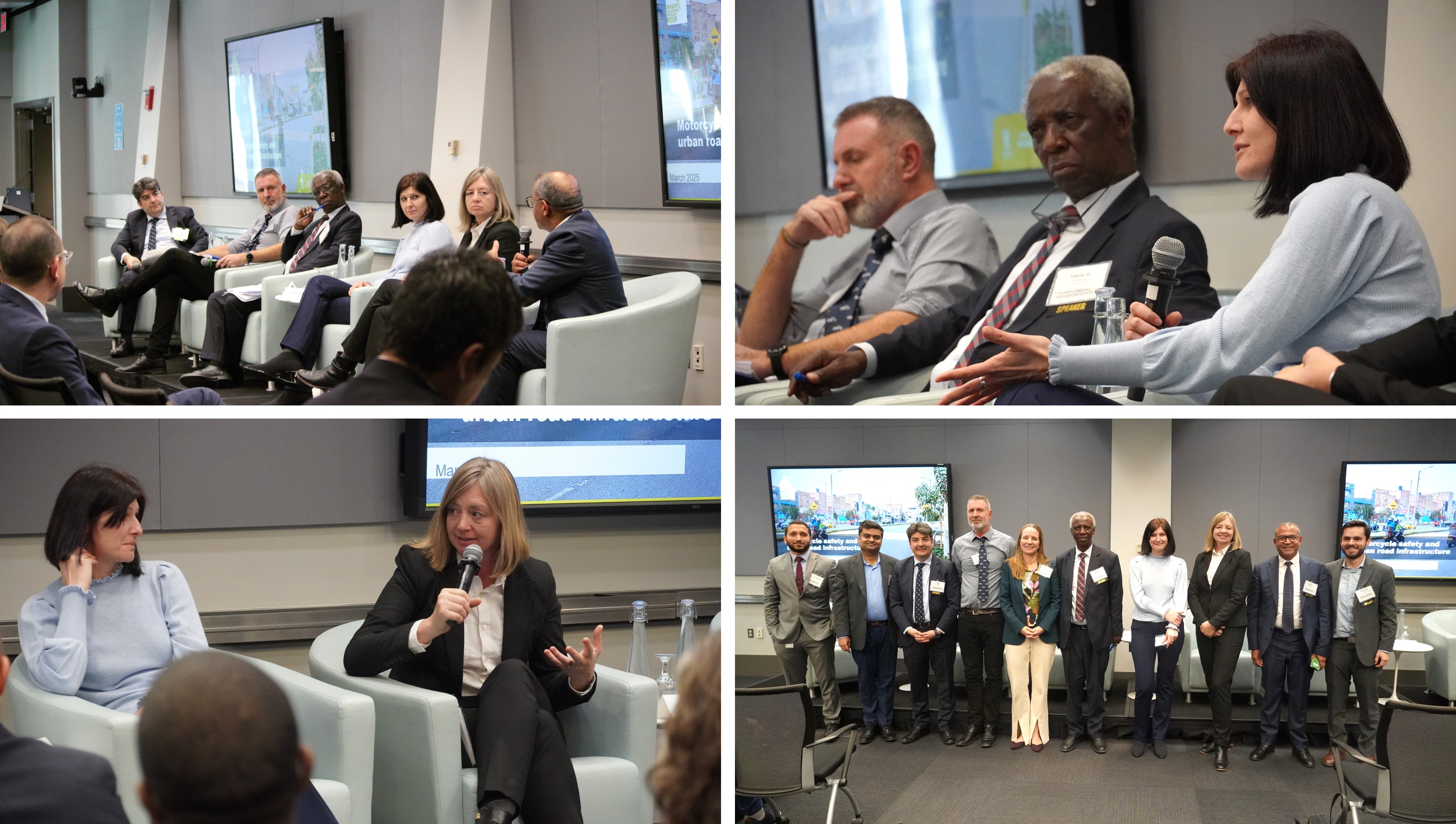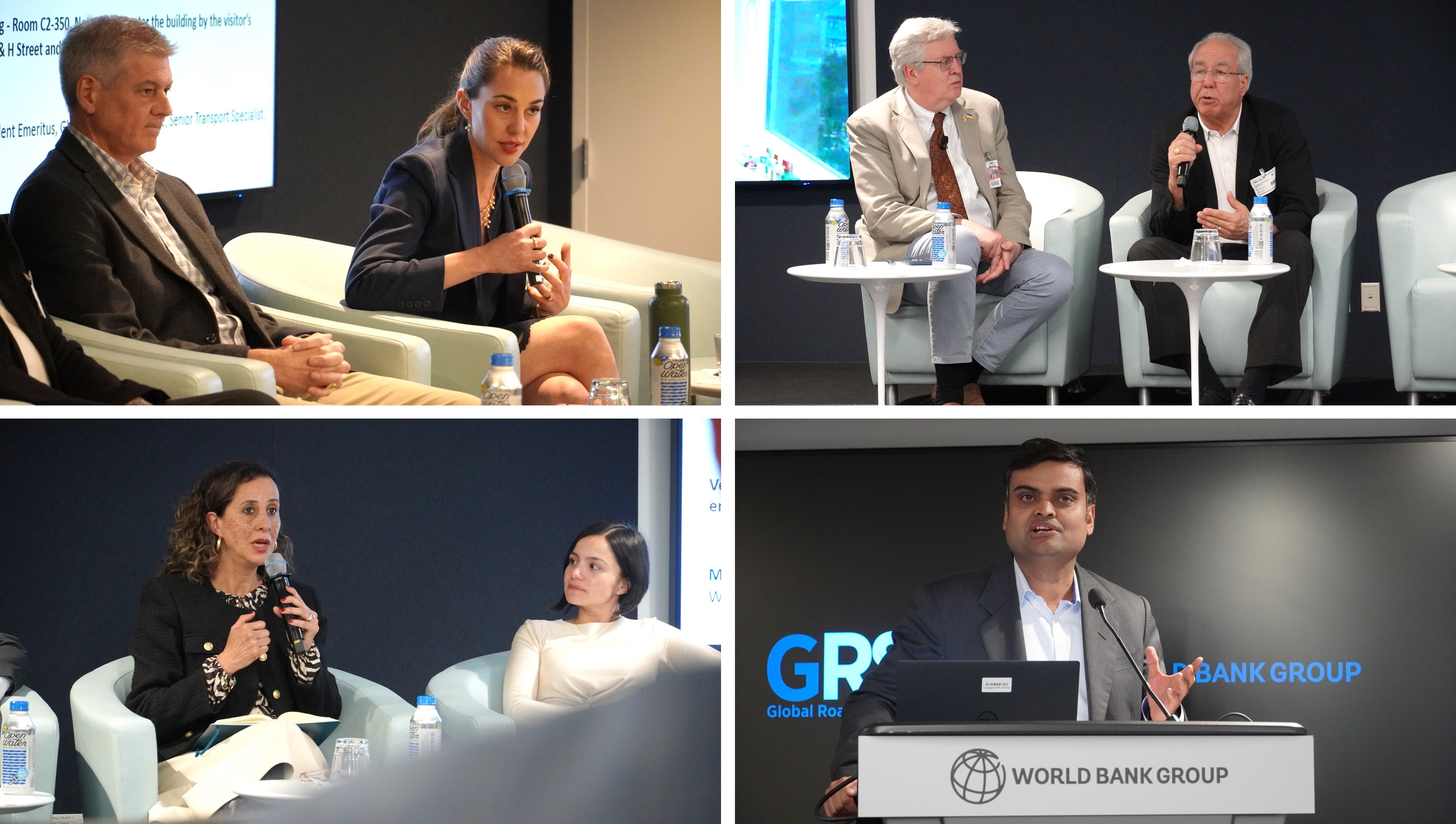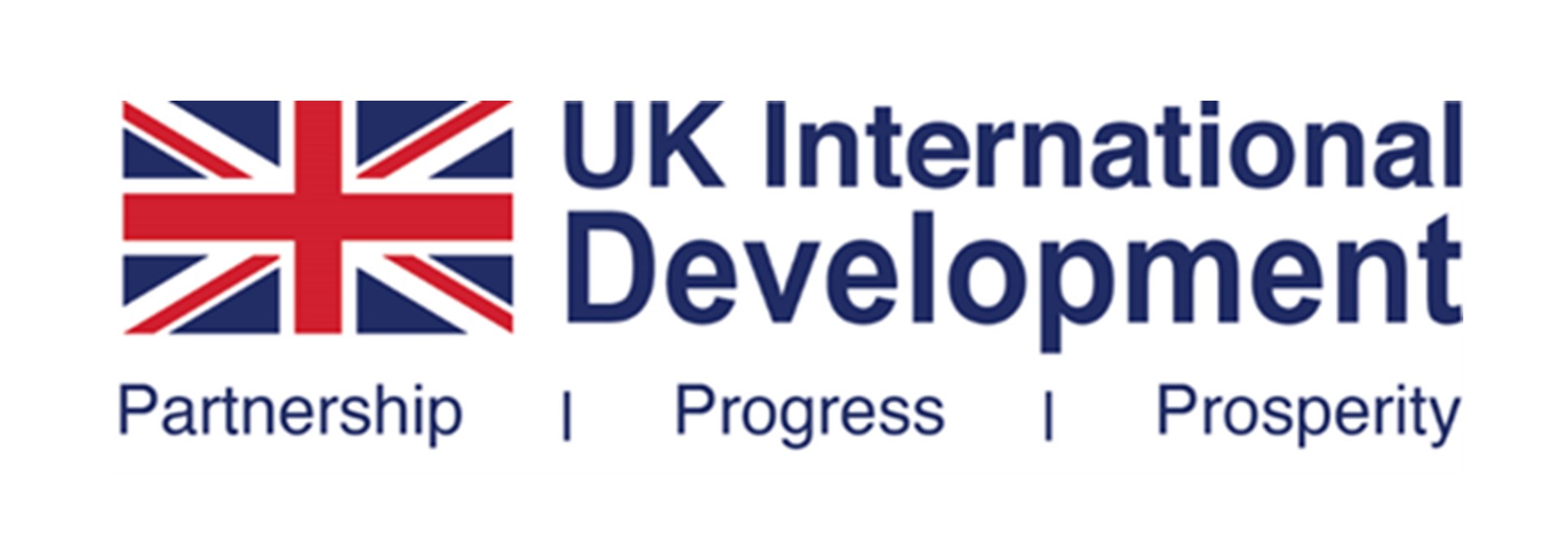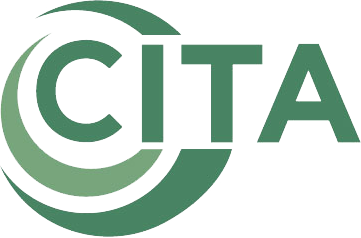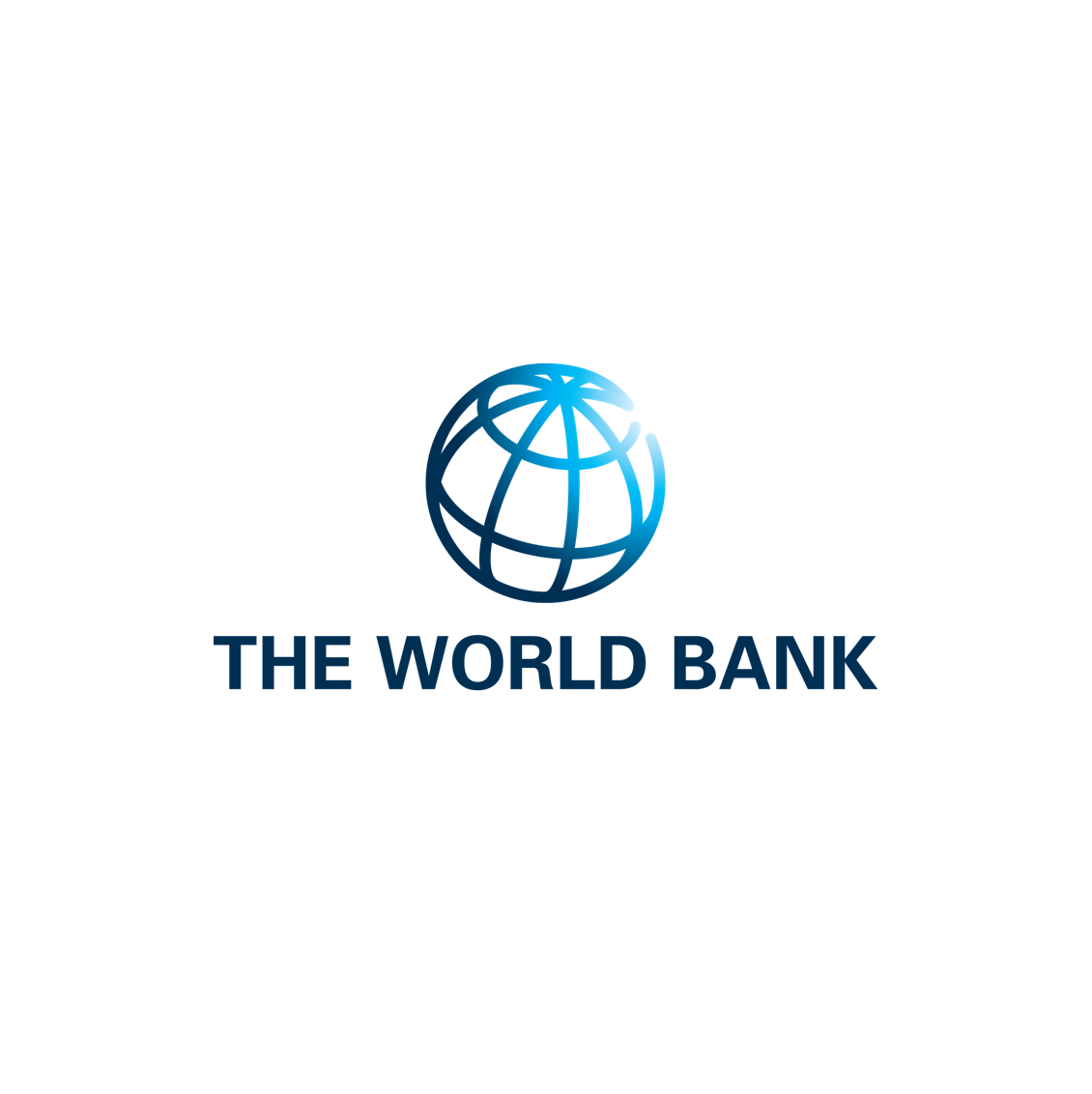GRSF had a strong presence at the 4th Global Ministerial Conference on Road Safety, held from February 17–20, 2025 in Marrakech, Morocco. With the world approaching the halfway point of the second UN Decade of Action for Road Safety (2021–2030), the conference served as a critical platform to assess progress, discuss ongoing challenges, and make new commitments to improving road safety and saving lives.
GRSF played a central role across high-level sessions, bilateral engagements, and knowledge-sharing events. From launching a report on sustainable finance to convening global heads of road safety lead agencies, GRSF reinforced its leadership in advancing safe and sustainable mobility.
Livestream recordings from the conference are available here.
Pre-Conference Event — Network of Heads of National Road Safety Agencies
On February 17, GRSF co-hosted a meeting of the Network of Heads of National Road Safety Agencies alongside the World Health Organization. Held as a full-day workshop on the day before the Ministerial Conference, the meeting brought together senior representatives from national road safety lead agencies around the world to exchange experiences and discuss how to accelerate progress toward the global target of halving road traffic deaths by 2030.
The World Bank’s Global Director for Transport, Nicolas Peltier, delivered opening remarks, emphasizing the critical importance of strong institutional leadership, sustainable financing, and capacity-building. He highlighted GRSF’s recently updated Strengthening Road Safety Management guidelines, which offer countries a roadmap to improve coordination, build institutional capacity, and implement effective road safety strategies for sustainable reductions in fatalities and injuries.
Structured around a “World Café” format, the meeting enabled dynamic discussions across key themes—including the role of lead agencies, technological innovation, and coordination frameworks between government ministries and agencies. The event reaffirmed the central role that road safety lead agencies play in driving road safety outcomes, and the value of peer-to-peer learning through global networks.
More details here.

Plenary Session – Empowering Governments: Pathways to Sustainable Road Safety Financing
On February 18, the World Bank’s Global Director for Transport, Nicolas Peltier, participated in a high-level panel discussion during the plenary session, Empowering Governments: Pathways to Sustainable Road Safety Financing. The session brought together global transport and finance leaders to explore how governments can secure long-term, reliable financing for road safety, emphasizing the urgent need to embed road safety into national budget planning and broader development agendas.
The discussion highlighted the importance of aligning road safety with cross-cutting priorities such as climate resilience, public health, and sustainable urban mobility. Speakers explored strategies to integrate safety considerations into investments that also support environmental and social goals. Discussions also examined innovative financing mechanisms, including public-private partnerships and sustainability-linked bonds, as tools to bridge the significant road safety funding gap. Panelists called for stronger collaboration across ministries—especially transport, finance, health, and planning—to ensure that road safety receives the sustained attention and resources needed to deliver lasting, equitable improvements in mobility and public well-being.
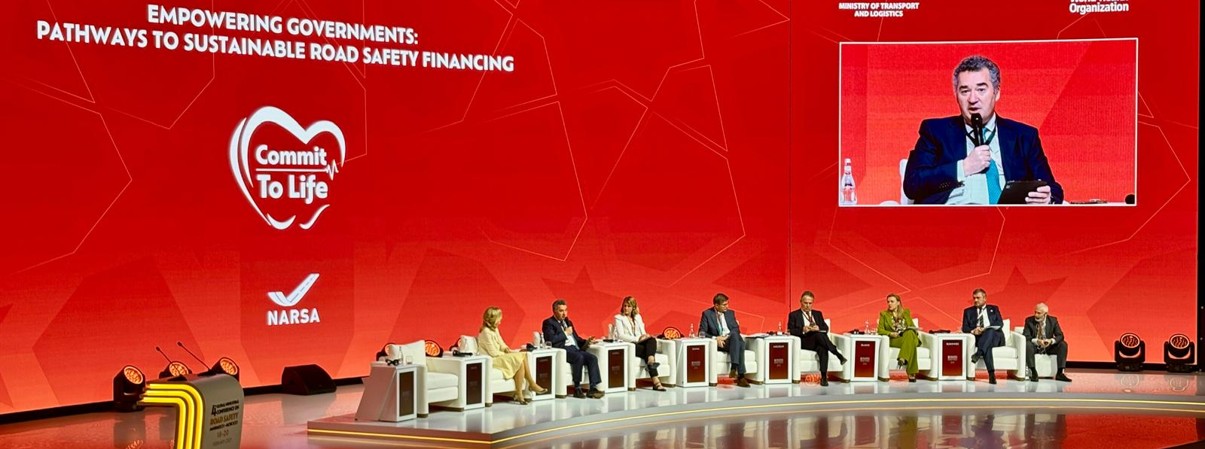
Side Event — MDBs’ Road Safety Working Group Meeting
Also on February 18, GRSF convened the Multilateral Development Banks’ (MDBs’) Road Safety Working Group at the Ministerial Conference to reaffirm their joint commitment to scaling up road safety financing and technical support. The meeting brought together representatives from major MDBs, including the World Bank, to assess progress since the launch of their joint statement at the Stockholm Ministerial in 2020 and to chart a path forward for stronger collaboration.
The discussion focused on the persistent financing gap—estimated at $400 billion over the next decade—and the need to expand the use of innovative instruments such as results- and policy-based lending, sustainable bonds, and blended finance. Participants discussed the key takeaways from the recently launched report co-authored by GRSF and the World Bank Treasury, Financing Road Safety: Catalyzing the Sustainable Finance Market to Bridge the Gap, which outlines how countries can access green and social bond markets to support national road safety programs.
The group released a press release in multiple languages—Arabic, Chinese, English, French, Portuguese, Russian, and Spanish—to coincide with the meeting, acknowledging the critical role MDBs play in combining financing with technical expertise and policy support. The press release announced that, from 2018 to 2024, MDBs mobilized over $6 billion in road safety investments in low- and middle-income countries, contributing to measurable reductions in fatalities and injuries. With growing demand for safe roads and urban transport investments, MDBs estimate that their road safety financing could reach $10 billion over the next decade.
The Working Group committed to deepening coordination, strengthening country-level engagement, and advocating for road safety to be embedded into national infrastructure planning. As the Secretariat of the MDBs’ Working Group, GRSF continues to play a key role in fostering collaboration among MDBs and driving catalytic development financing for road safety.

Report Launch: Africa Status Report on Road Safety 2025
On February 19, the Africa Transport Policy Program (SSATP)—a partnership hosted by the World Bank—officially launched the Africa Status Report on Road Safety 2025. The event was conducted in collaboration with the African Union Commission (AUC) and the World Health Organization (WHO).
The report offers a detailed look at road safety trends across Africa, covering crash outcomes, legislation, infrastructure, vehicle standards, and emergency response. It highlights that Africa continues to face the world’s highest road traffic fatality rates—approximately 650 deaths daily, with pedestrians making up 39% of the toll. The report also identifies critical data and policy gaps and outlines recommended actions to strengthen road safety systems.
Speakers included representatives from SSATP, AUC, and WHO, who discussed the report's main takeaways and discussed the urgency of implementing the report's proposed actions to reduce road traffic fatalities and injuries across the continent.

Parallel Session — Mobilizing the Private Sector: Road Safety Assessment Framework for Corporate Action
On February 19, the World Bank’s Global Director for Transport, Nicolas Peltier, participated in a panel during the parallel session Mobilizing Business—Road Safety Assessment Framework for Corporate Action and Reporting. The session brought together business leaders, government officials, and representatives of multilateral organizations to explore how the private sector can contribute to safer roads through better governance, procurement practices, and performance reporting.
Peltier introduced the new Financing Road Safety report, highlighting the opportunity of tapping into the trillion-dollar sustainable finance market to support large-scale road safety investments. He emphasized that low- and middle-income countries require an estimated $400 billion over the next decade to meet global road safety targets—far beyond what public budgets alone are likely to provide.
The panel discussed how businesses can integrate road safety into their operations and supply chains, while the Peltier stressed the complementary role of the public sector in developing bankable projects, de-risking investments, and enhancing access to capital markets. The session also reinforced the importance of embedding road safety in environmental, social, and governance (ESG) strategies and aligning investments with the UN Sustainable Development Goals.

Parallel Session — Delivering Results-Focused Road Safety Governance: How It Is Done and Who Does It?
Moderated by Said Dahdah, Program Manager of GRSF, this session on February 19 examined how different institutional and governance models influence the effectiveness of road safety management. Grounded in the Safe System approach, the discussion explored how a lead agency—or the absence of one—can shape national efforts to reduce road traffic deaths. Three models were presented: a dedicated lead agency; an institution assuming partial lead functions; and a decentralized model with no coordinating body.
Panelists reflected on experiences in low- and middle-income countries and highlighted common challenges related to coordination, accountability, and achieving results. The session also addressed how road safety governance can align with broader Sustainable Development Goals, emphasizing the need for cross-sector collaboration among transport, health, urban development, and environmental institutions. The session underscored that strong leadership, clear mandates, and institutional coordination are key to delivering sustainable road safety outcomes.

Plenary Session – From Mobilizing to Organizing: The Challenges of Implementation
On February 19, World Bank Vice President for Infrastructure, Guangzhe Chen, delivered closing remarks at the plenary session From Mobilizing to Organizing: The Challenges of Implementation, calling for urgent, coordinated action to address the global road safety crisis. He underscored the devastating toll of road crashes, which claim a life every 24 seconds and disproportionately affect low- and middle-income countries.
Chen highlighted that while MDBs have collectively mobilized over $6 billion for road safety since 2018, bridging the estimated $400 billion funding gap requires bold new approaches. He emphasized the role of GRSF in catalyzing over $4 billion in World Bank-financed road safety projects and supporting countries in designing high-impact, results-based investments.
A key focus of Chen’s remarks was the growing opportunity to leverage the sustainable finance market. He announced the launch of a new World Bank guide to help governments issue social and green bonds for road safety investments—offering an innovative way to expand financing while aligning with investor demand and sustainability goals.
Chen closed with a call to action for governments, development banks, and the private sector to scale investments, strengthen institutions, and implement life-saving policies. He invited all stakeholders to engage with GRSF and help build safer, more inclusive road systems. “The Marrakech Declaration has set the stage,” he said. “Now is the time to act.”

Advancing Motorcycle Safety: World Bank Commitment at UN Group of Advisors Meeting
At the Fourth Meeting of the UN Secretary-General’s Special Envoy for Road Safety’s Group of Advisors on February 19, the World Bank reaffirmed its strong commitment to improving motorcycle safety—one of the most urgent road safety challenges in low- and middle-income countries. During the session on the Safe and Affordable Helmet (SAAH) initiative, the World Bank presented its ongoing contributions across three priority areas: adherence, awareness, and availability.
The World Bank highlighted efforts to support helmet standards adoption in Bangladesh and Kenya, awareness campaigns for women riders in Bangladesh, and training for commercial motorcyclists in Viet Nam. It also announced a partnership with IFC to scale up helmet production and distribution in Africa and India, alongside electric two-wheeler manufacturers and delivery companies.
GRSF’s co-financing of a UN Road Safety Fund grant for a new motorcycle safety assessment program in Southeast Asia was also spotlighted. The World Bank emphasized its commitment to embedding helmet safety into policies, projects, and private sector partnerships to help save lives on the road.
Building Partnerships: Strategic Bilateral Engagements
Throughout the conference, the World Bank and GRSF delegation held numerous bilateral meetings with ministers and senior officials from countries including Morocco, the United Kingdom, Kenya, India, Pakistan, Malta, and Brazil, as well as with key partners such as TotalEnergies, CITA, and the UN Special Envoy for Road Safety. These high-level discussions served as critical opportunities to strengthen collaboration, explore new financing avenues, and align on shared priorities for road safety.
The bilateral engagements focused on supporting national strategies to scale up road safety investments and strengthen institutional capacity. Delegates also explored technical cooperation opportunities.

Showcasing Innovation: GRSF Booth at the Exhibition Hall
Throughout the conference, GRSF hosted a prominent booth in the exhibition hall. The booth showcased the GRSF’s latest tools and publications, and attracted a steady stream of delegates, including ministers, development partners, and private sector leaders.






